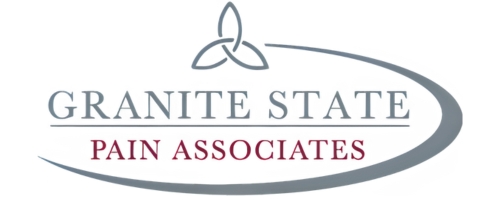Nerve Pain Relief
The leading choice for nerve pain relief treatments in New Hampshire.
Find Relief from Nerve Pain in New Hampshire: Expert Solutions for Comfort and Wellness
Peripheral neuropathy refers to a condition affecting the peripheral nervous system, which comprises nerves branching out from the spinal cord throughout the body. This condition commonly causes nerve pain, particularly in the long sensory nerve endings that extend to the extremities such as the arms, hands, legs, and feet, and occasionally to the face and trunk.
Damage to these peripheral nerves can lead to sensations like burning or pins and needles, accompanied by heightened sensitivity to touch in the affected areas, akin to a severe sunburn. These symptoms often progress from the fingers and toes towards more central areas like the calves or forearms over time. Multiple nerves can be affected simultaneously.
At Granite State Pain Associates, our providers are dedicated to helping you manage and alleviate your nerve pain for improved comfort and well-being.

We provide nerve pain relief treatments in New Hampshire. These treatments include:
Therapeutic injections, such as nerve blocks or epidural injections, target specific areas to reduce inflammation and alleviate pain by blocking pain signals from reaching the brain. By delivering medication directly to these targeted sites, therapeutic injections work to reduce inflammation, relieve pain, and improve overall function.
Nerve blocks, for instance, involve the administration of anesthetic agents or steroids to block pain signals from traveling along nerves to the brain, effectively interrupting the pain pathway. Similarly, epidural injections deliver medication into the epidural space surrounding the spinal cord, providing relief from pain associated with conditions like herniated discs or spinal stenosis. These therapeutic interventions are carefully tailored to each patient’s unique needs, aiming to restore comfort, mobility, and quality of life.
Pain management is a highly personalized journey. What works well for one individual may not be suitable for another, making medication management a process that requires time, patience, and ongoing evaluation. It’s crucial to comprehend your prescribed medication plan, adhere strictly to dosage instructions, and regularly communicate your medication’s impact to your healthcare provider. Effective medication management necessitates regular in-person visits with your provider to ensure optimal treatment outcomes.
Physical therapy plays a crucial role in alleviating and managing nerve pain by addressing underlying issues contributing to the pain and promoting healing and functional improvement. Through targeted exercises, manual therapy techniques, and education, physical therapists can help reduce nerve compression, improve nerve function, and enhance overall musculoskeletal health. Additionally, physical therapy focuses on correcting posture, strengthening muscles, and improving flexibility, which can alleviate nerve pain by reducing strain on affected nerves and supporting proper biomechanics.
